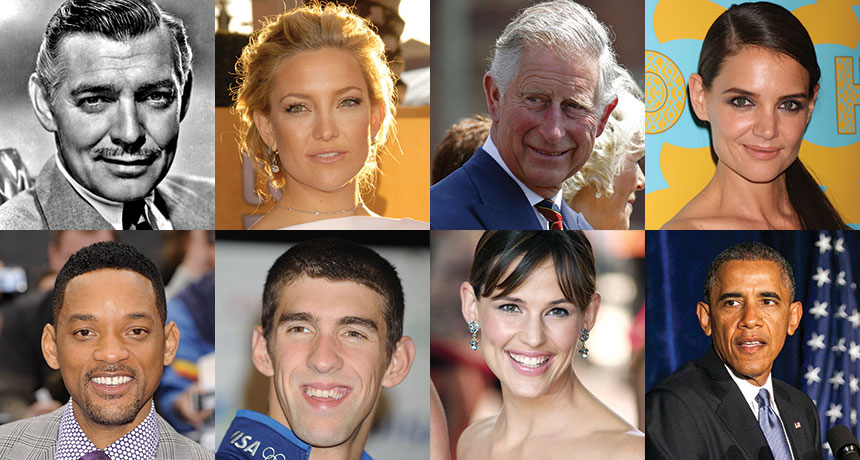Big ears don’t necessarily come with baggage
In a small study, onlookers judged big-eared faces as intelligent, likable

NOT DUMBO Prominent ears on children and teenagers weren’t judged negatively by adult observers, a small study found.
Clockwise from top left: Wikiwatcher1/Wikimedia Commons; S_bukley/Shutterstock; Jamie Roach/Shutterstock; Helga Esteb/Shutterstock; U.S. Department of State/Flickr; Everett Collection/Shutterstock; Everett Collection/Shutterstock; The Image Worx/Shutterstock